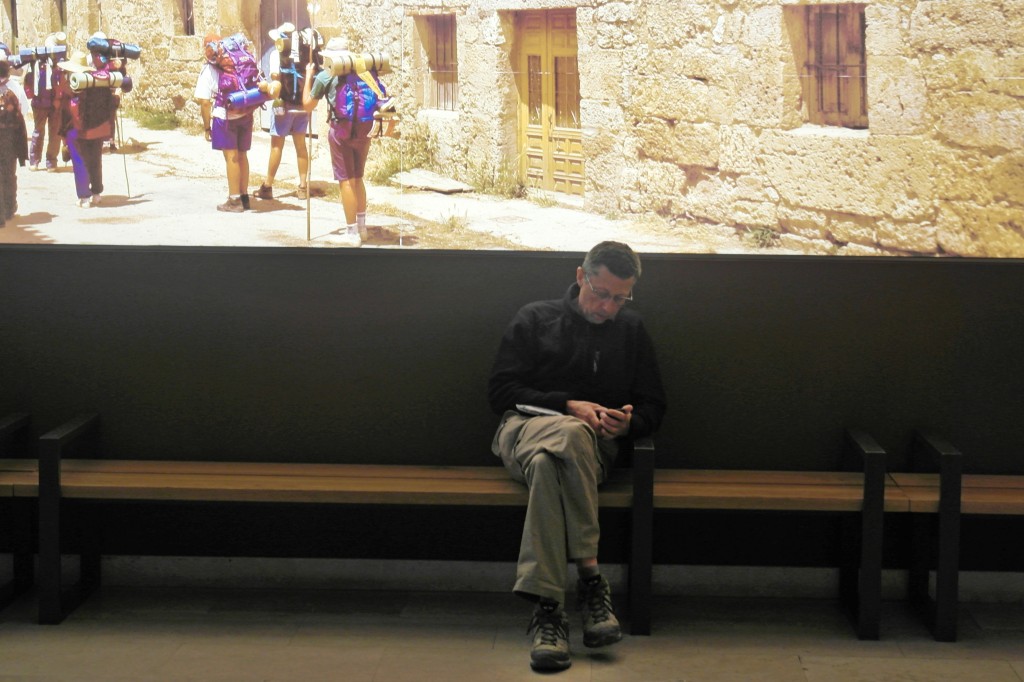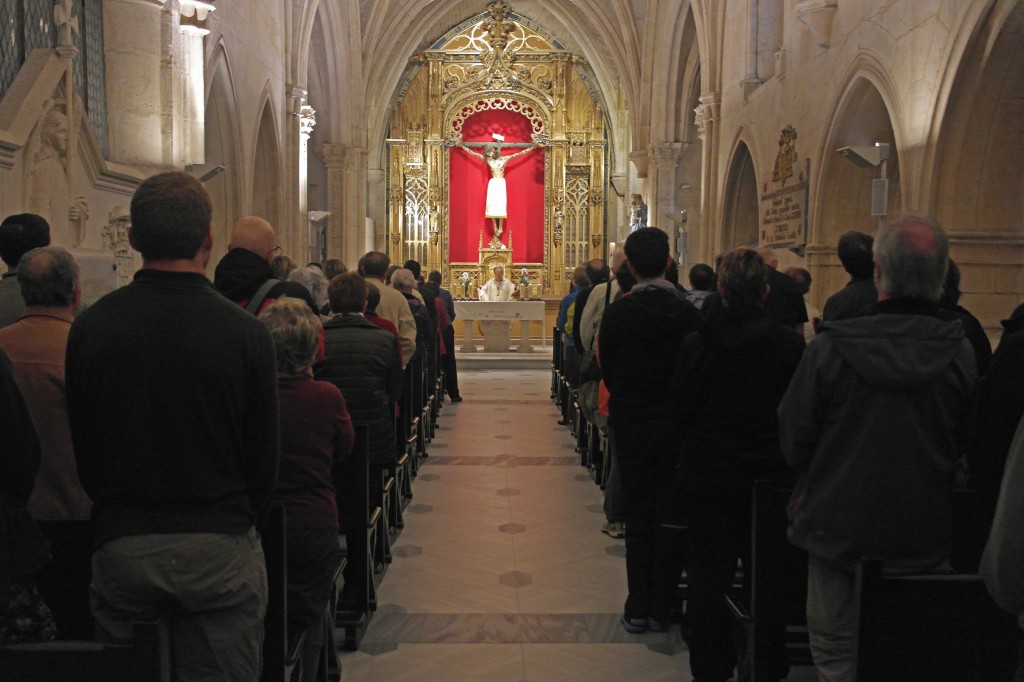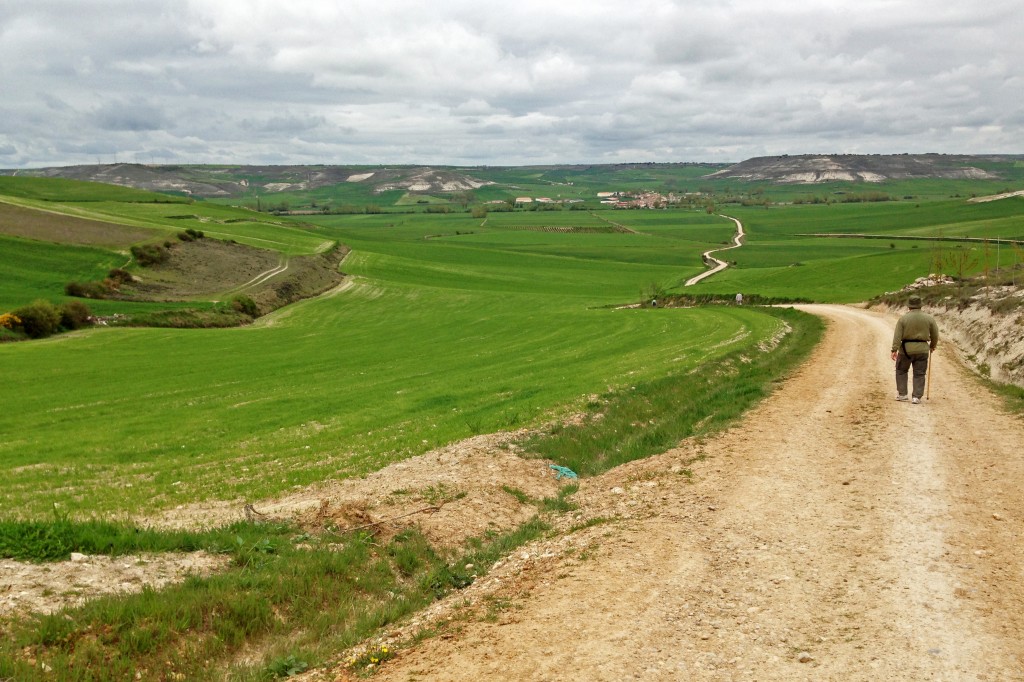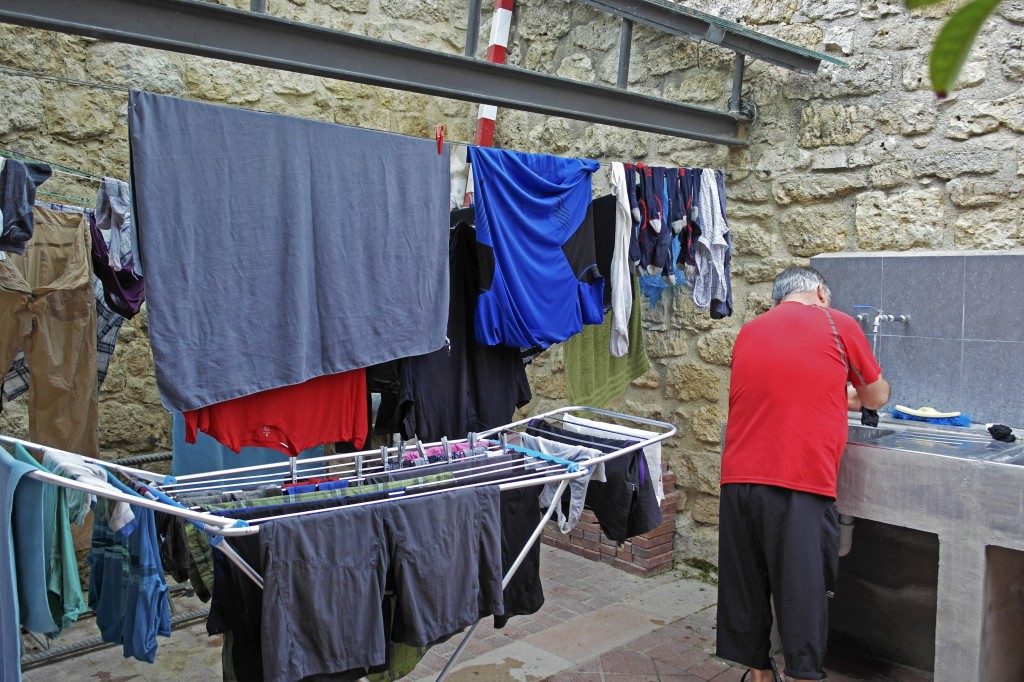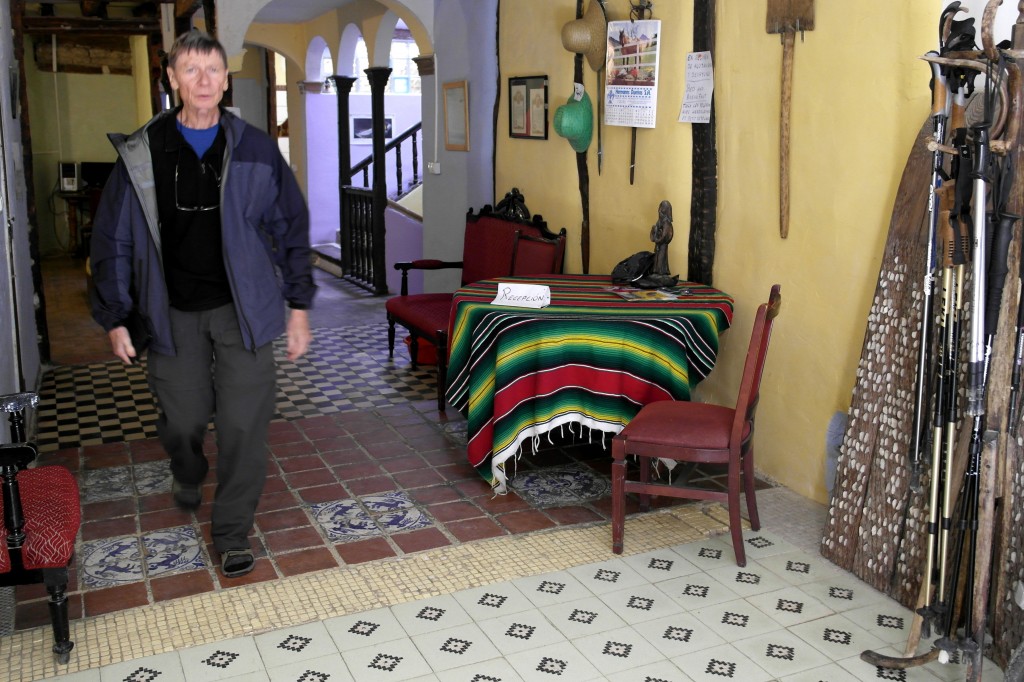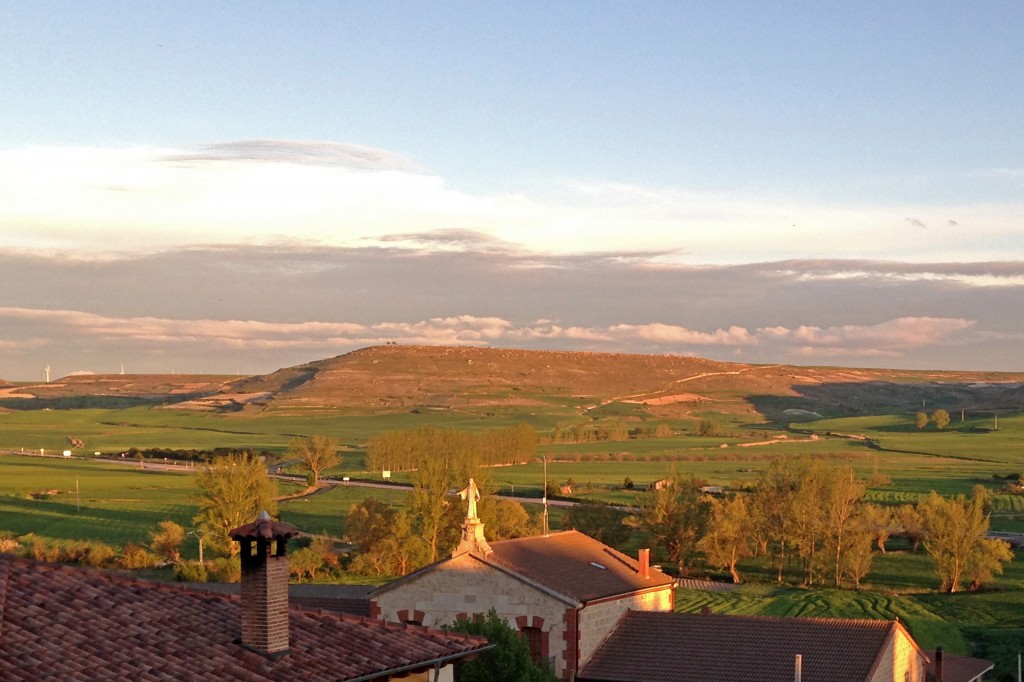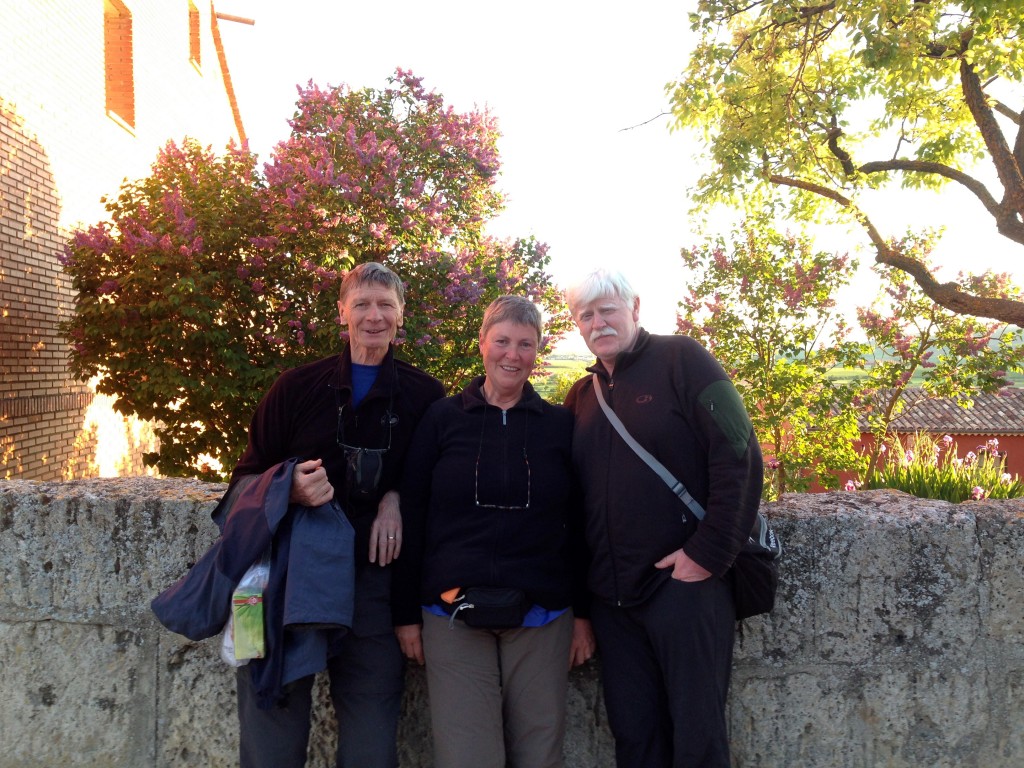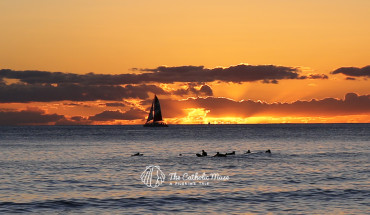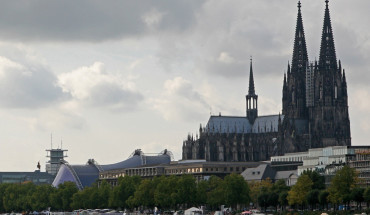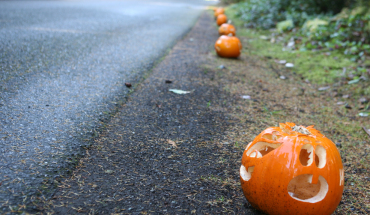Boarding a bus bound for Burgos, the driver opens the luggage compartment and Pilgrims toss bicycles, backpacks and poles into the cavernous space. Locals are piling into the bus, briefcases in hand. It’s Monday morning and day twelve of my pilgrimage on the Camino de Santiago.
I’m finding it difficult to separate myself from my backpack; everything I own is in it. It is a metaphor for life – the stuff we carry in it reflecting the burdens that weigh us down. As the journey progresses I find myself reevaluating what items I carry that are necessary and which ones are weighing me down. Letting go of my entire bag is difficult.
Once on board, Paolo, an Italian Pilgrim sits next to me. Over the next couple of hours we spoke of many things, work, family, faith and the meaning of the Camino. We touched on the difference between northern Italians and Sicilians (my husband is Sicilian), the European economy and how I was feeling so very guilty as our bus drove by all the peregrinos along the Camino. I wanted to slouch in my seat so as not to be recognized. He assured me I should not worry; he has taken the bus many times. The Camino is a personal journey and is different for each of us.
Paolo accompanied me to the clinic where we stood in line. When it was my turn, I was asked for my insurance card (a Spanish one) which of course I don’t have. I was given a bill for services about to be rendered. A man explained in Spanish to Paolo that I needed to go across the street to the bank and pay the bill, bring the receipt back and then I could see a doctor.
I stood in line for 45 minutes at the bank only to have the bank teller look at me like I was crazy when I handed her the bill. After much discussion, we were directed to another bank some eight blocks away. I paid the bill, €72.80 and walked back to the hospital. Good thing my foot wasn’t broken! I was given a doctors name and sent upstairs. A man in dress slacks and a buttoned up shirt sitting behind a desk looks at my foot and tells me it is sprained and I need to take 600 mg of ibuprofen (I was already taking 400), wear a brace (already wearing one), and elevate it whenever possible. But it won’t heal until you stop walking, sit and watch TV for a couple of weeks with your foot up. Entirely up to you.
After checking into the albergue I attended the evening Pilgrim’s mass in a small side chapel of the Cathedral. A woman taps me on the shoulder during mass and says, “Do you remember me from the train in St. Jean de Pied de Port?” It was one of the Bulgarian women I had met and later stayed with in Larrasoaña, she had pulled a tendon in one leg and tore a meniscus in the other. She is laid over here to see a doctor and get some rest. She will meet up with her friends tomorrow in another town because that is her Camino.
The following morning I left early with no swollen foot and a determination in my heart. Paolo did too. I hope he found his “Way.”
Burgos marks a change in the Camino. Here we begin our journey across Spain’s Meseta – some equate it to America’s southwestern desert, often dry and scorching hot. But it is springtime and we are spared the jarring heat that can accompany this journey. In May the crops are high and the fields are green.
The Meseta’s long straight flat path can be hypnotic; my poles have worn down to the steel tips and each step produces a clicking noise, accenting the rhythm of my step. I remember something a priest asked me in Paris (in the confessional) “Do you pray?” he asked me. “Prayer activates God. It is a long way to Santiago de Compostela. Pray. Pray every day,” he says in his slow broken English, struggling for each word.
Prayer activates God.
So I started a rosary, which isn’t easy with poles in your hand. With no beads I devised a system: one, Hail Mary, full of grace…, two, Hail Mary, full of grace…, and so on. I lost track a lot but I always remembered which number I left off on. And since the only meditation I know by heart is the sorrowful mysteries, I just stuck with being sorrowful, which if you knew me you would find apt and appropriate. This process took me the whole day. I lost track a lot.
Hornillios is a small one-street-wide village and about four blocks long; time and circumstances have taken their toll on the structures here. The one restored building is a private Albergue. It’s full. The town square has exactly three tables with chairs serviced by the one bar in town. The church is closed as is the municipal albergue (usually run by volunteers and cheap), which will open for pilgrims shortly, but they already have more Pilgrims in line than they have beds. I get in line anyway.
When the doors open the Pilgrims shove forward. They pile down a flight of stairs, across a landing and down another flight of stairs, to a table where a woman sits and collects your name, passport number and €5. I’m still outside waiting. The women in front of me are talking about getting a taxi and ask me if I would like a ride. I remember how guilty I felt taking that bus, and the whole point of not making reservations along the Camino is trust. Trust that you will be taken care of. Trust that the Camino will provide. So there may not be enough beds, but I wait anyway.
A few more people pass by and say they are going to the next town, another 12k. I can’t walk another 12k. I make it inside, half way down the first set of stairs. How can they still have beds? A man in front of me surrenders announcing to his group we are going to the next town, we’re not getting a bed here. His entire group of eight heads for the door. I pray anyway.
Prayer. That activates God, right?
There are two Asian men (boys really) in front of me. They reach the table and the woman writes their names in the last two slots. My heart sank, but I stay anyway.
I reach the table the woman looks at me and asks, “solo?” I reply, “Si.” She turns the page backwards scrolls through all the names to one empty line and writes in my name. They got the last two beds on the page, but I got a bed anyway!
Into the night the woman remains accepting Pilgrims in the churches’ gym, sheltering them from an evening storm. No hot water, but there are beds. I’m inside the albergue and grateful.
Day-break comes and I am on my way. We enter Castrojeriz with blue sky and an abundance of albergues. I chose an old Spanish building with cracked tile floors and big wooden beams that hold up the ceiling.
A bed and breakfast – €8. Laundry washed, dried and folded – €7. Our room has ten beds and a view across the Meseta. There is a German peregrina in the kitchen brewing tea. She invites me to have dinner with her and two French-Canadians. We walk to town with the beautiful Spanish sunlight shining on the Meseta, peace in my heart and warmth in my soul. My phone beeps. It’s Wednesday on the Camino de Santiago and it’s time to “Walk with Grace.”

